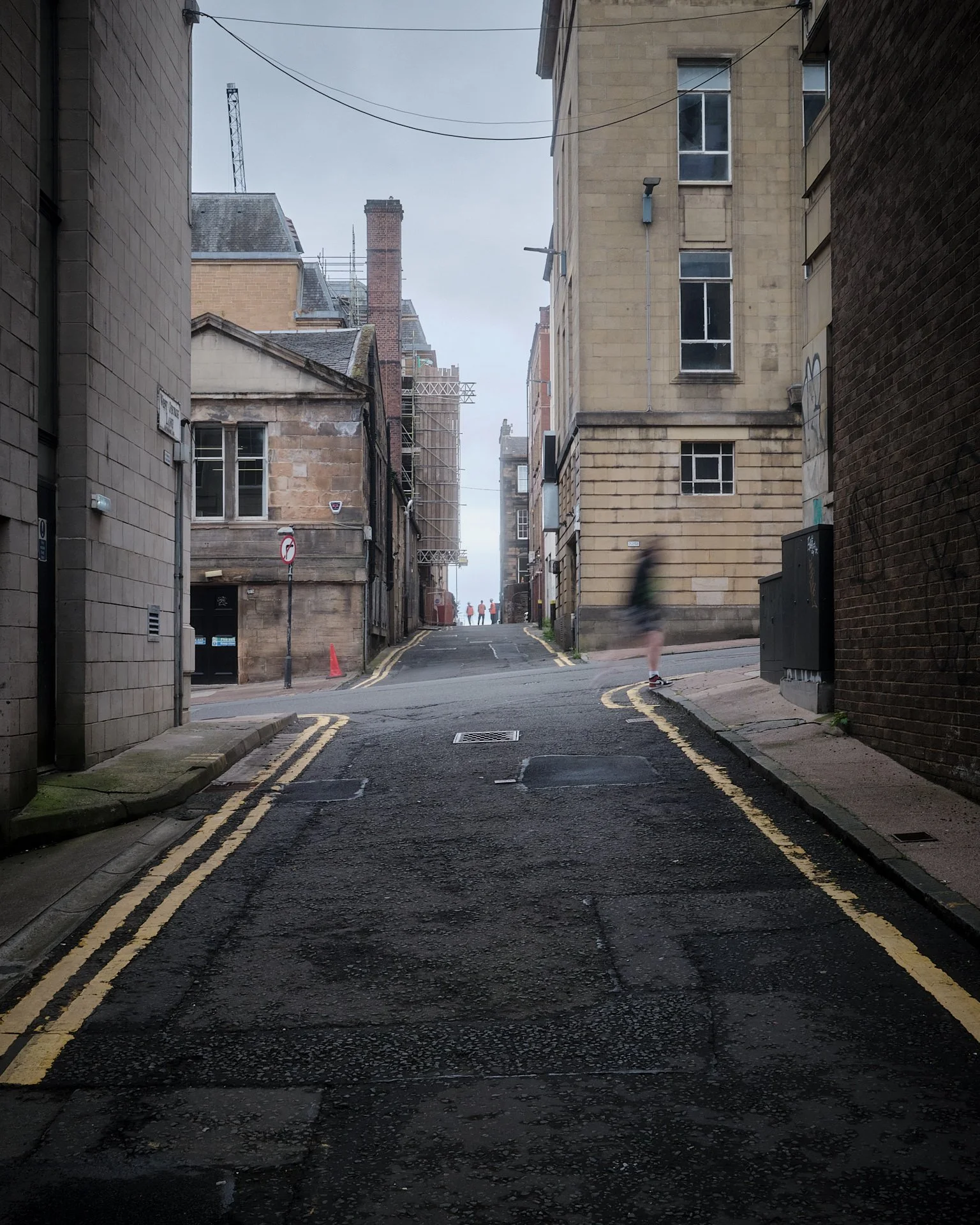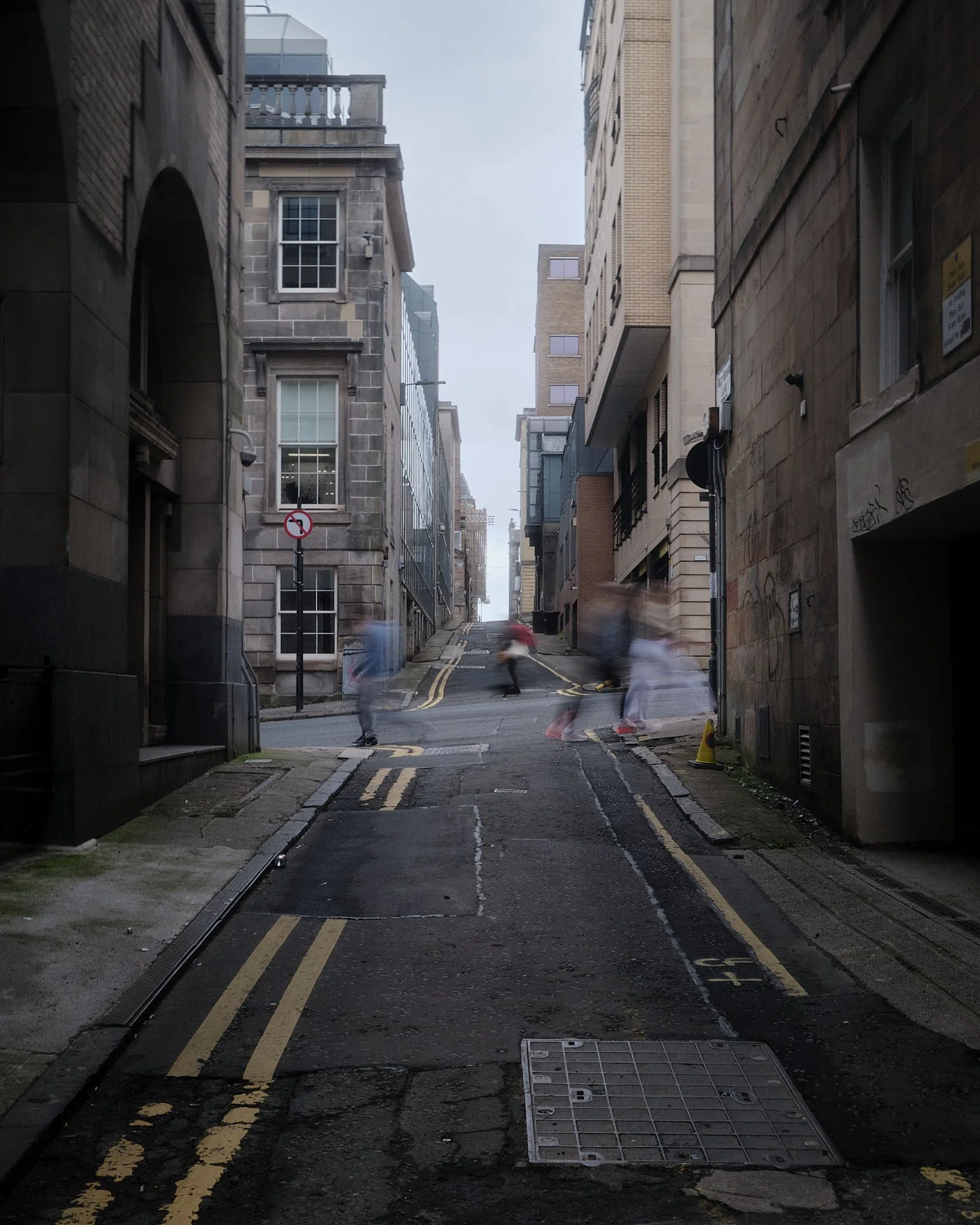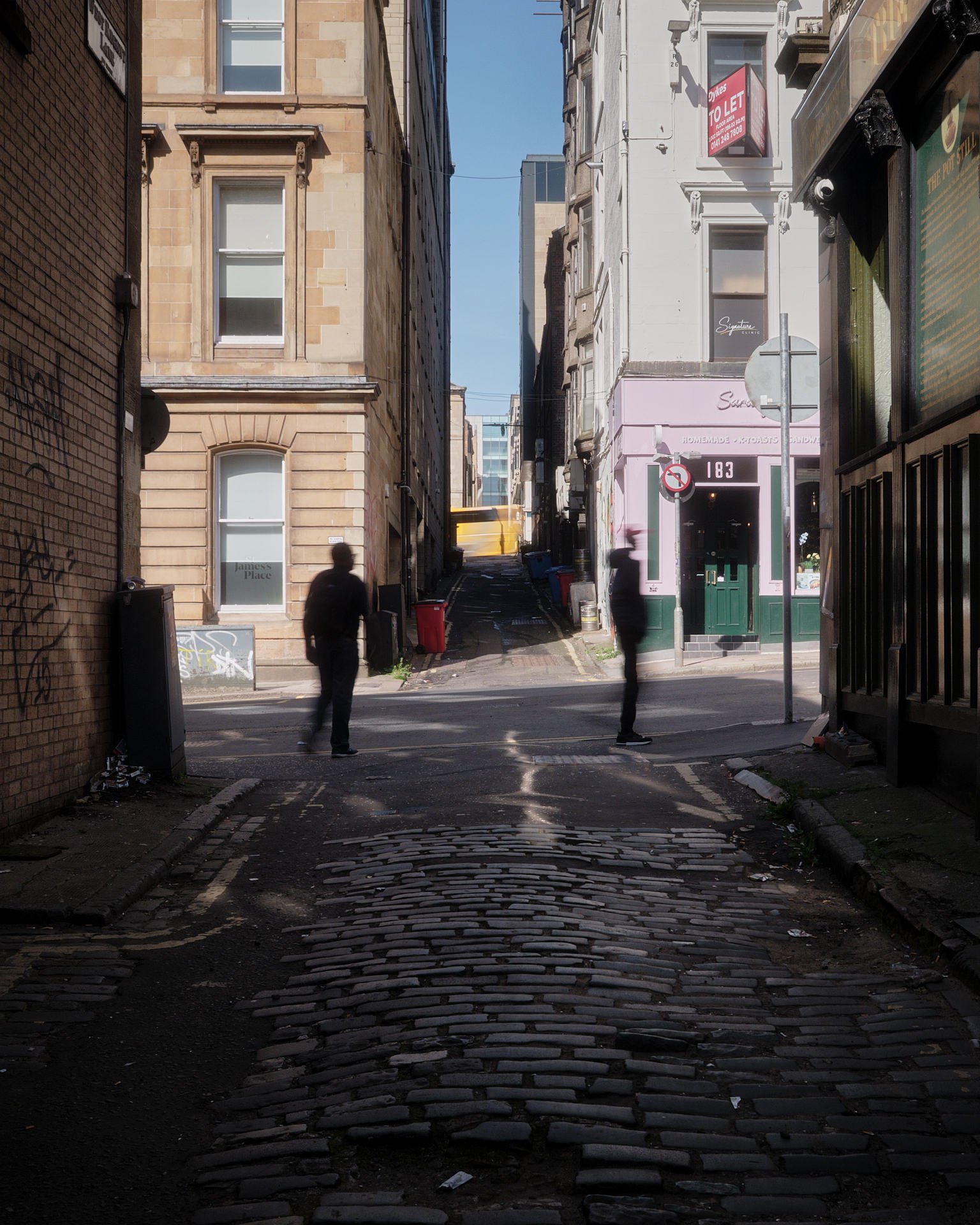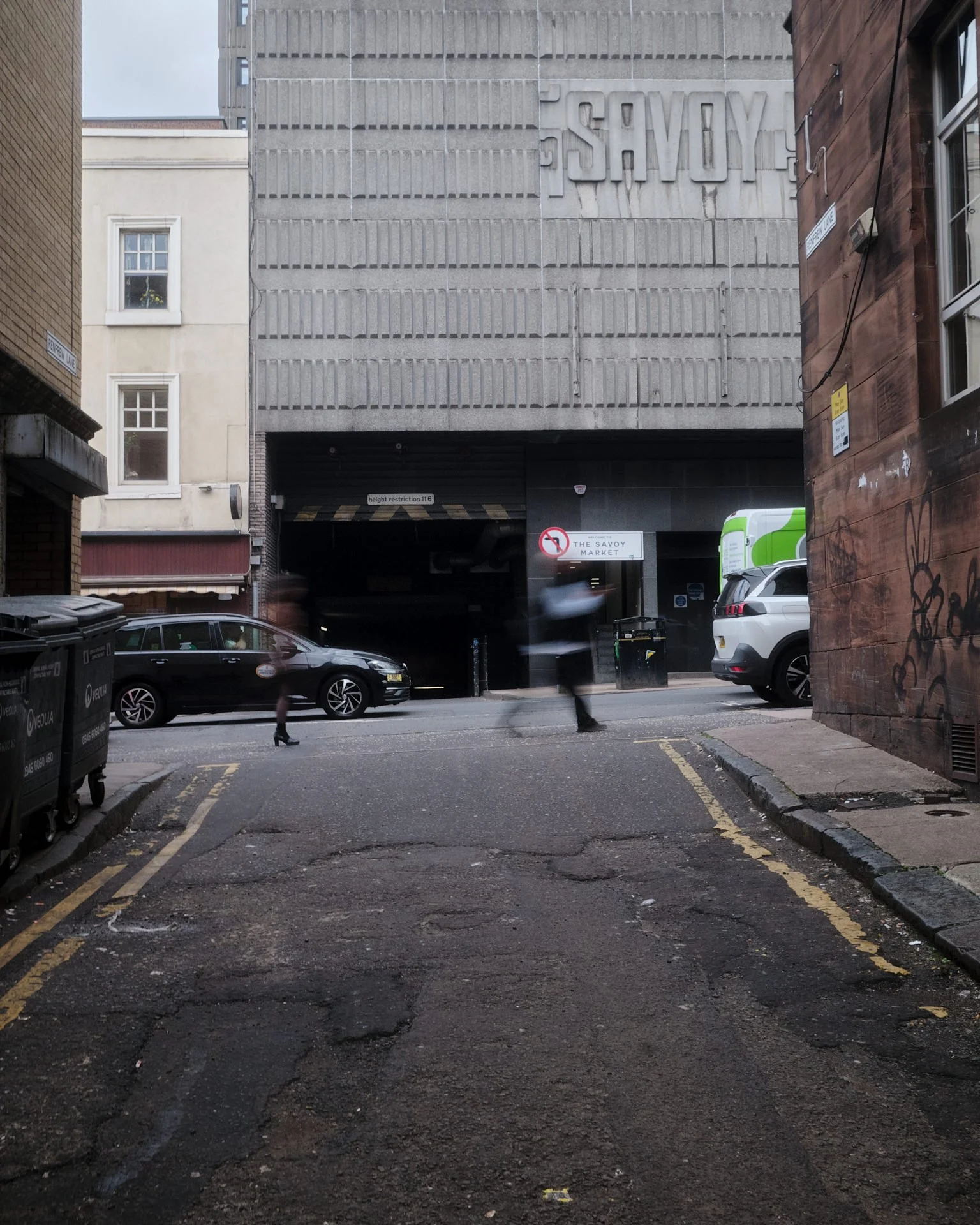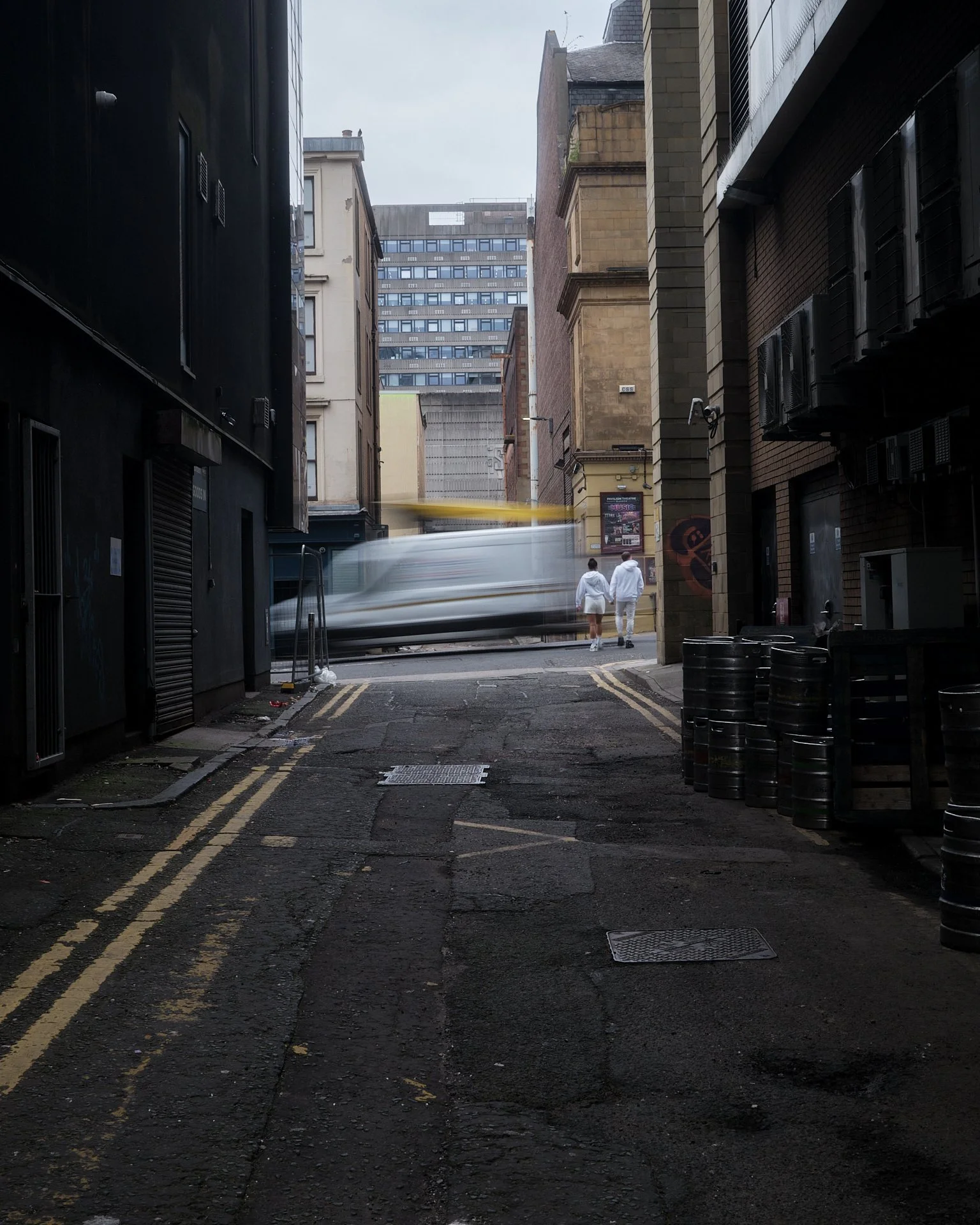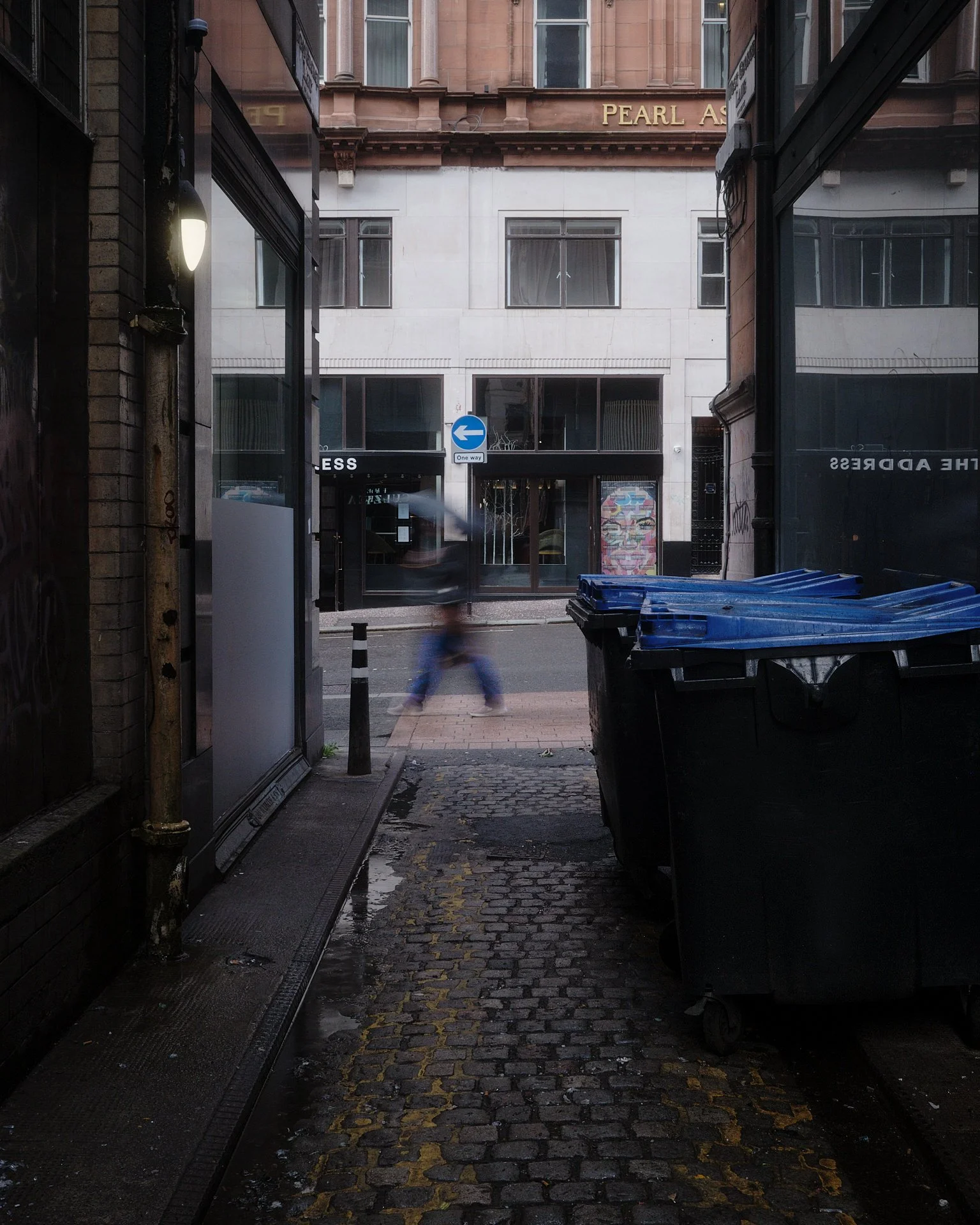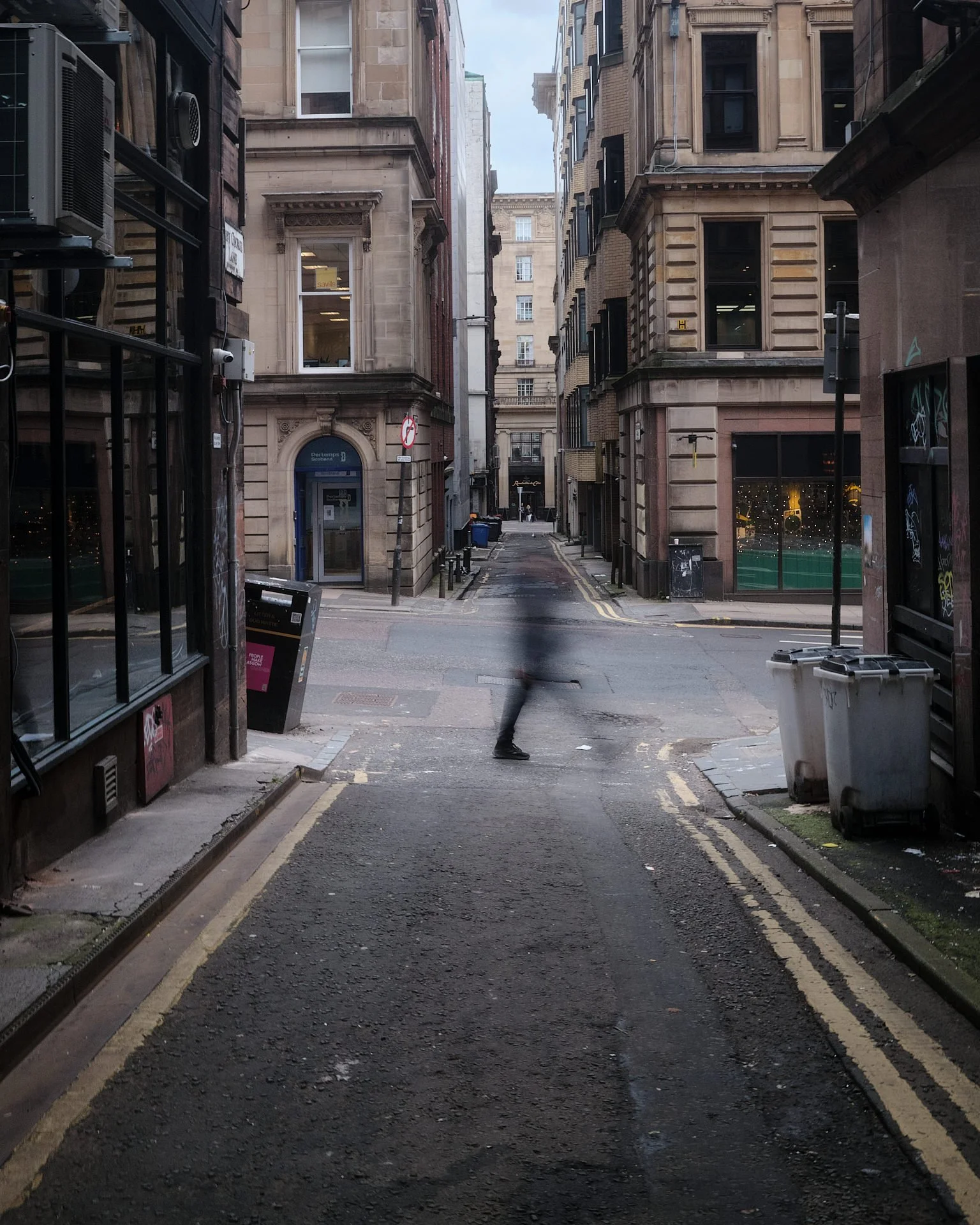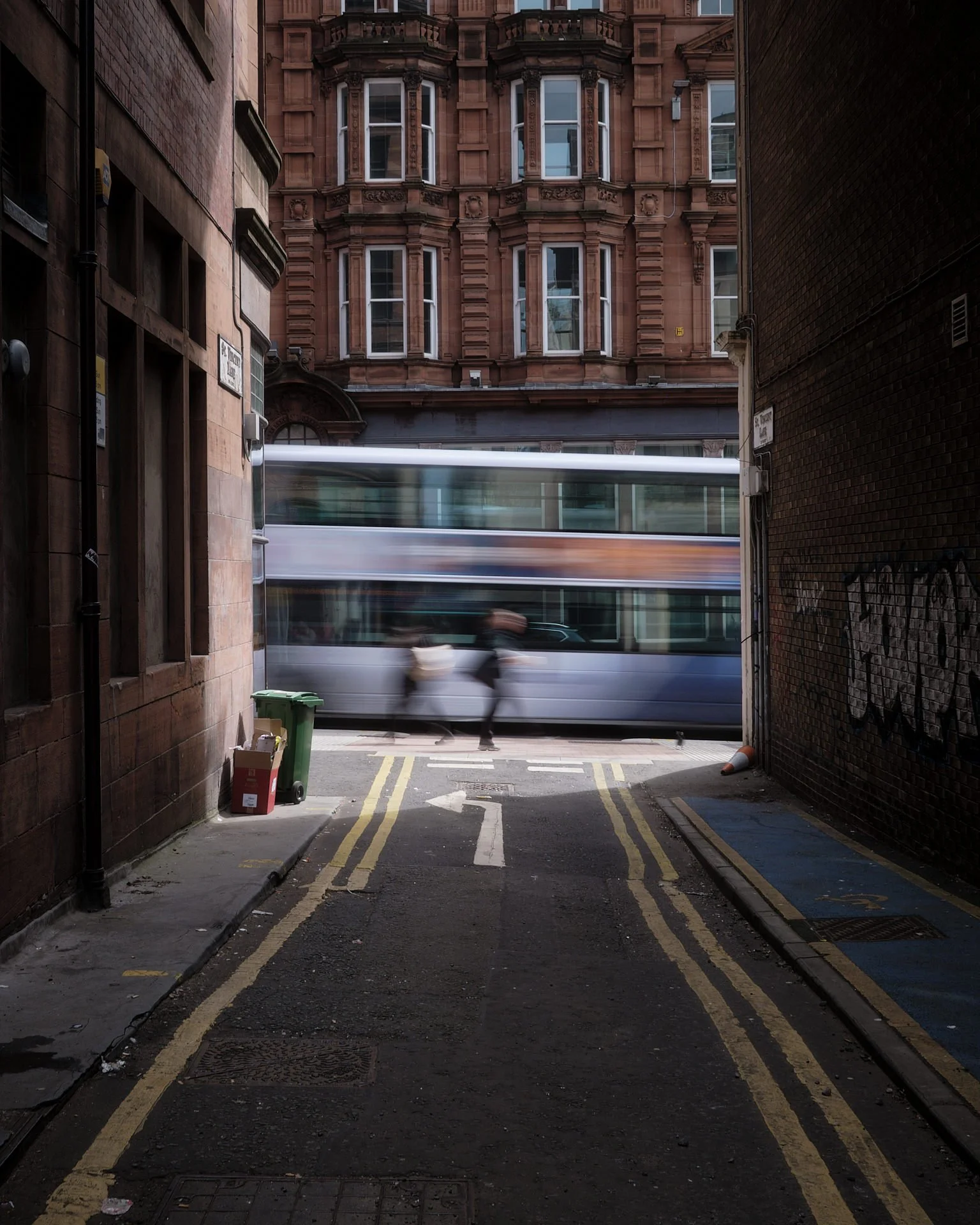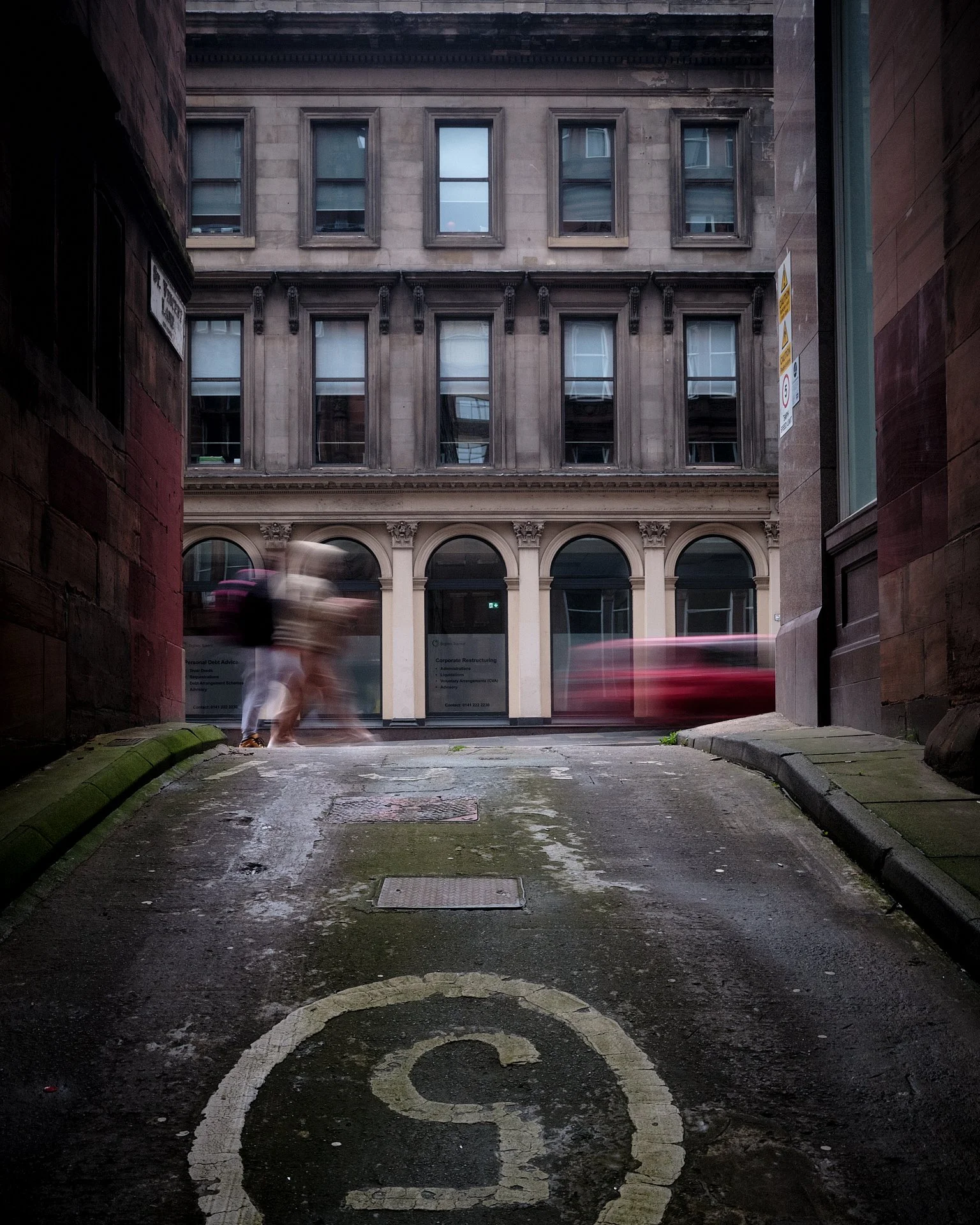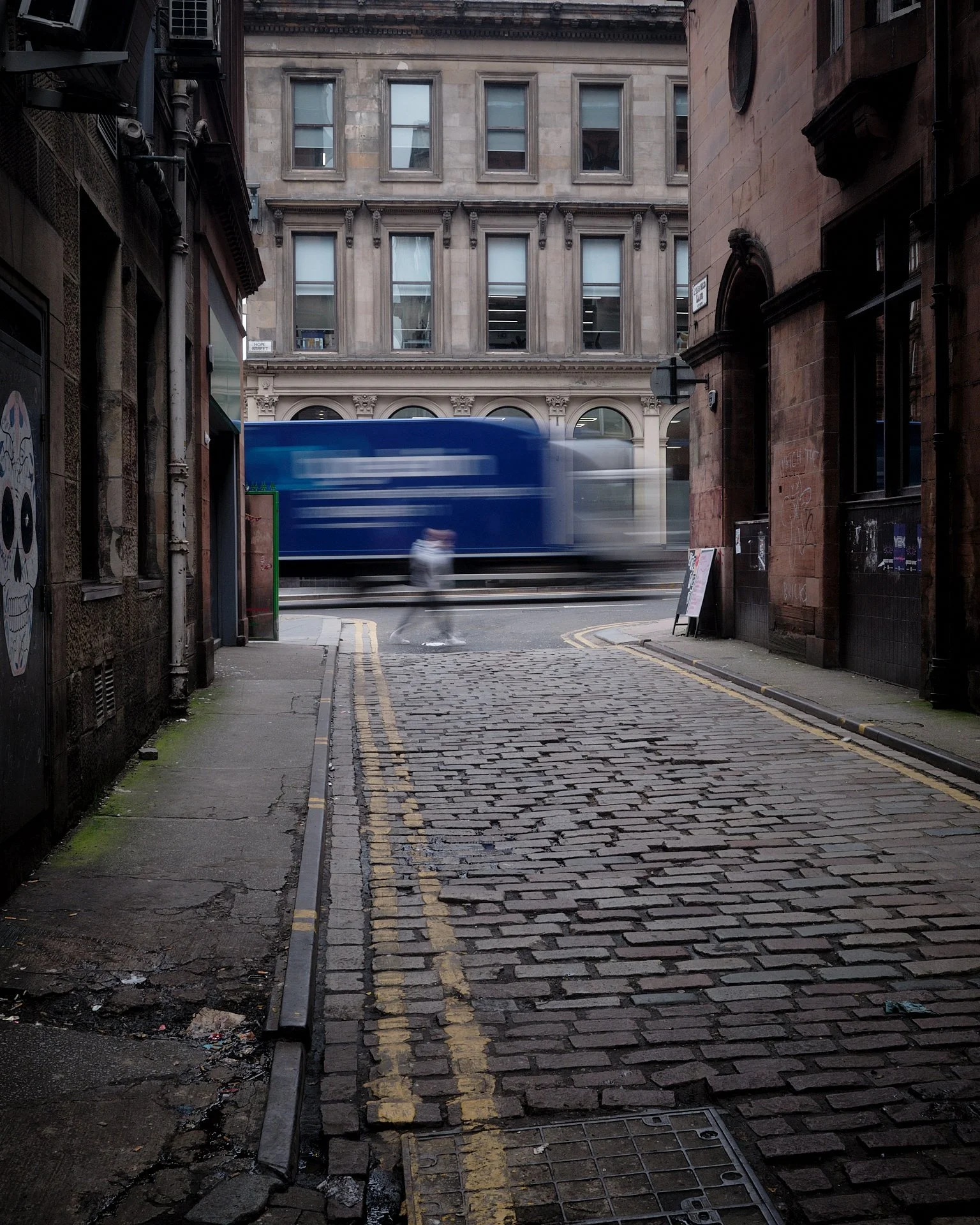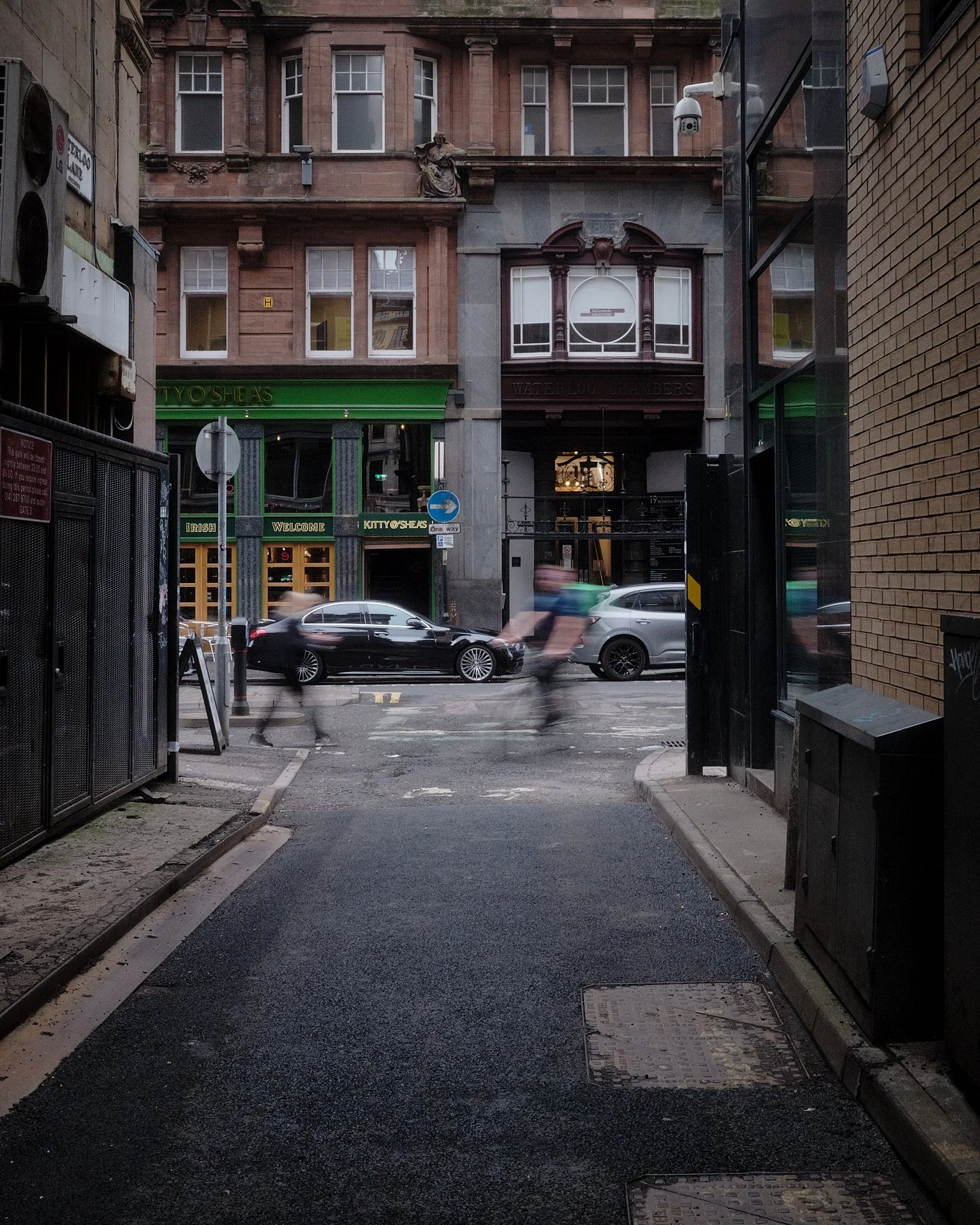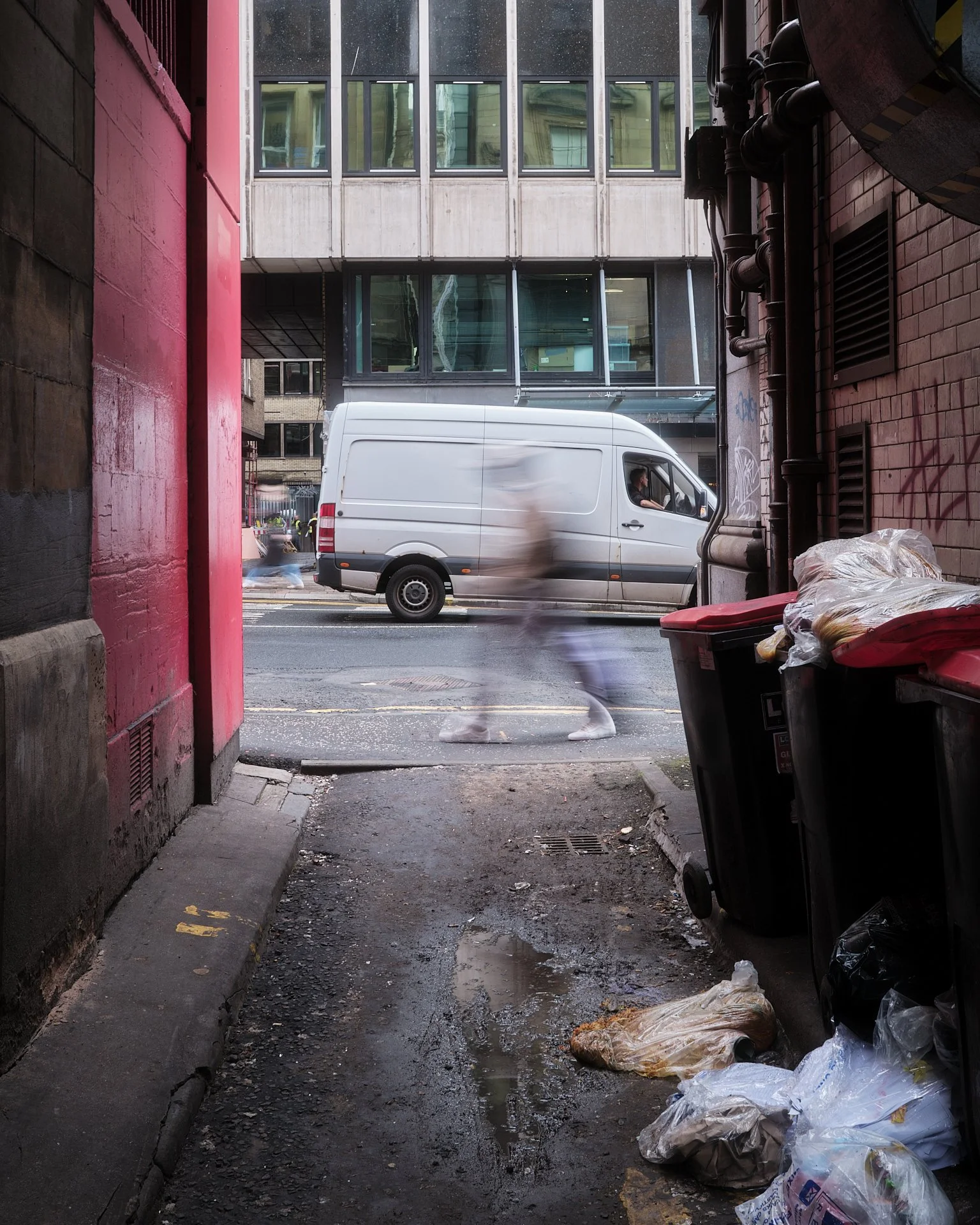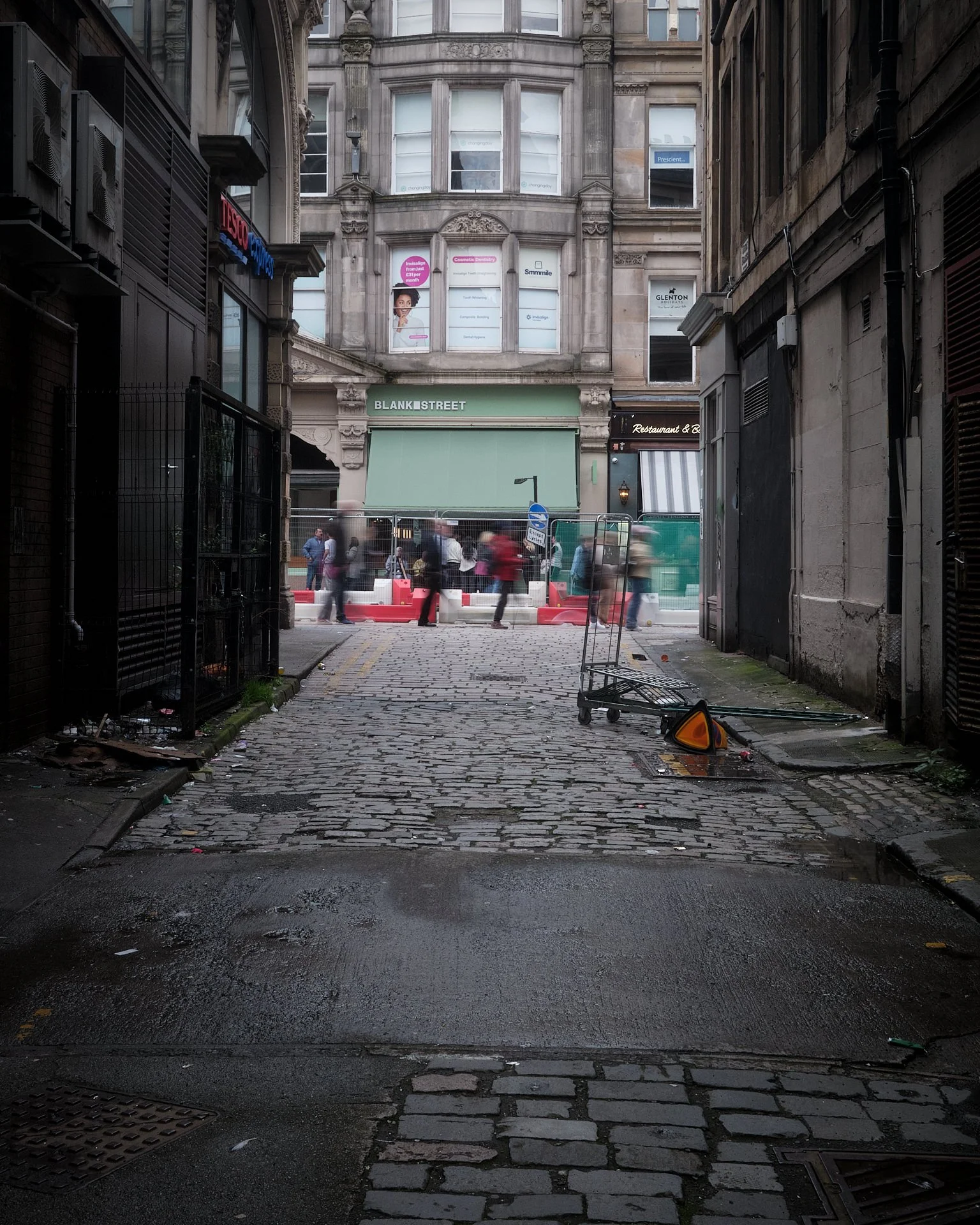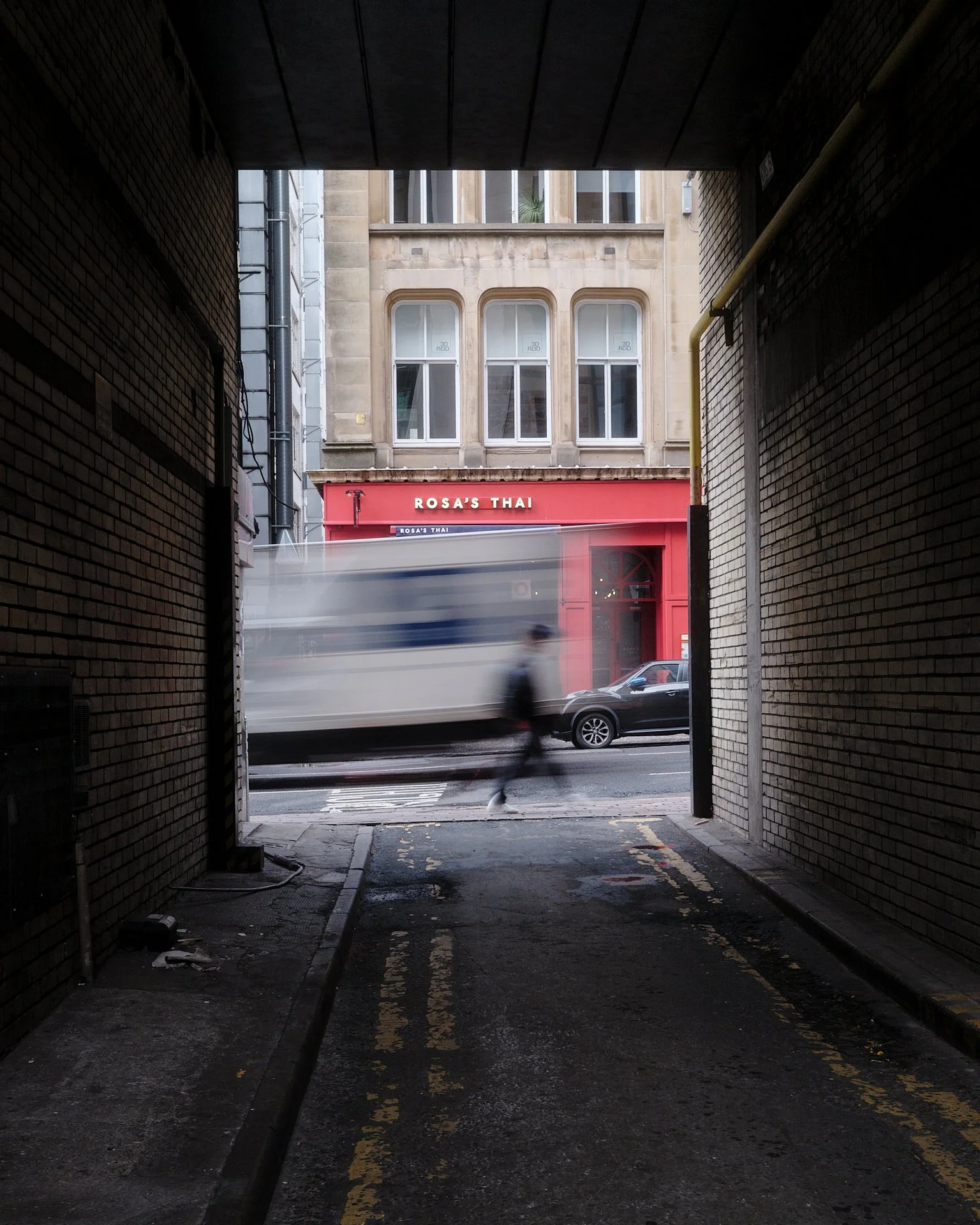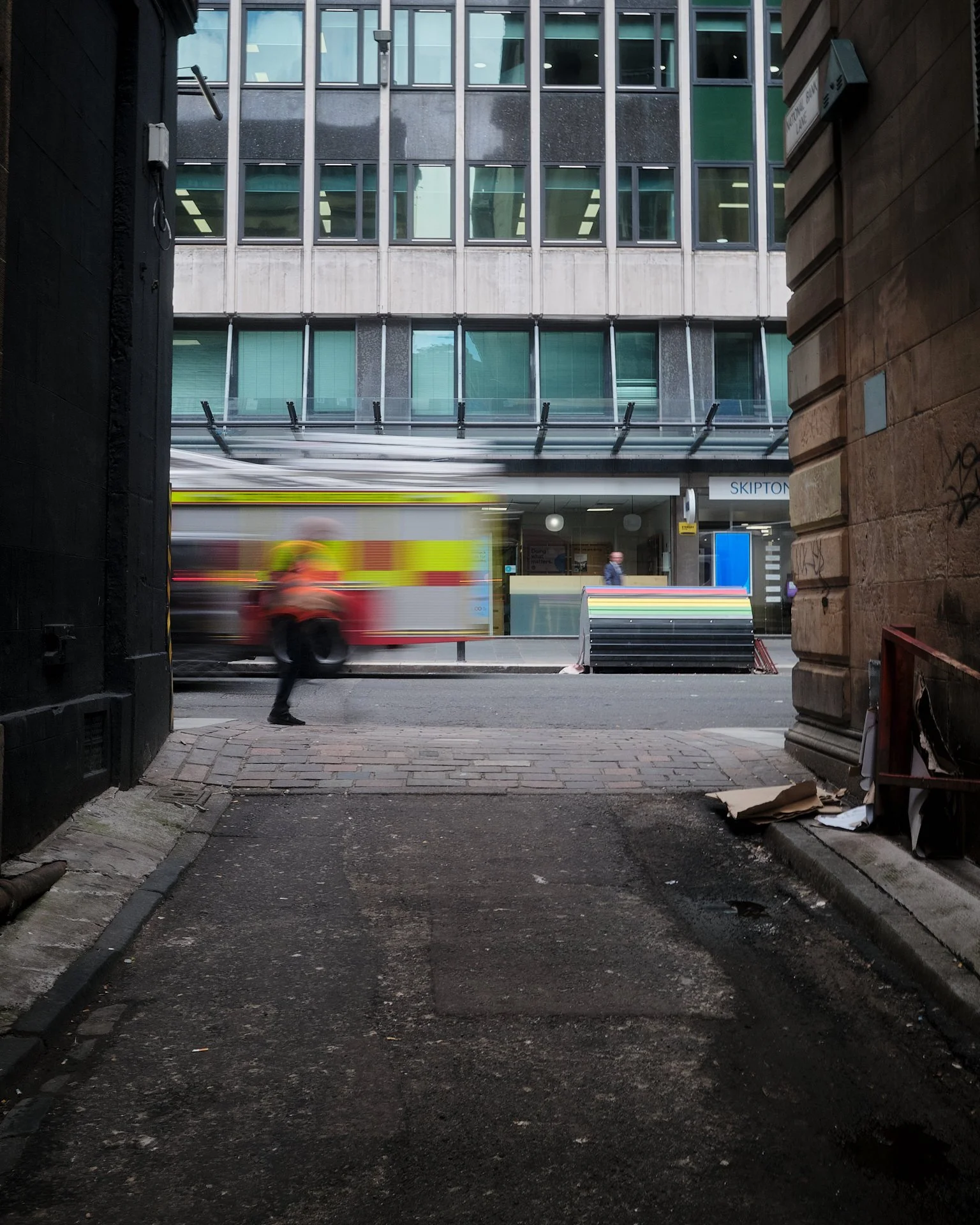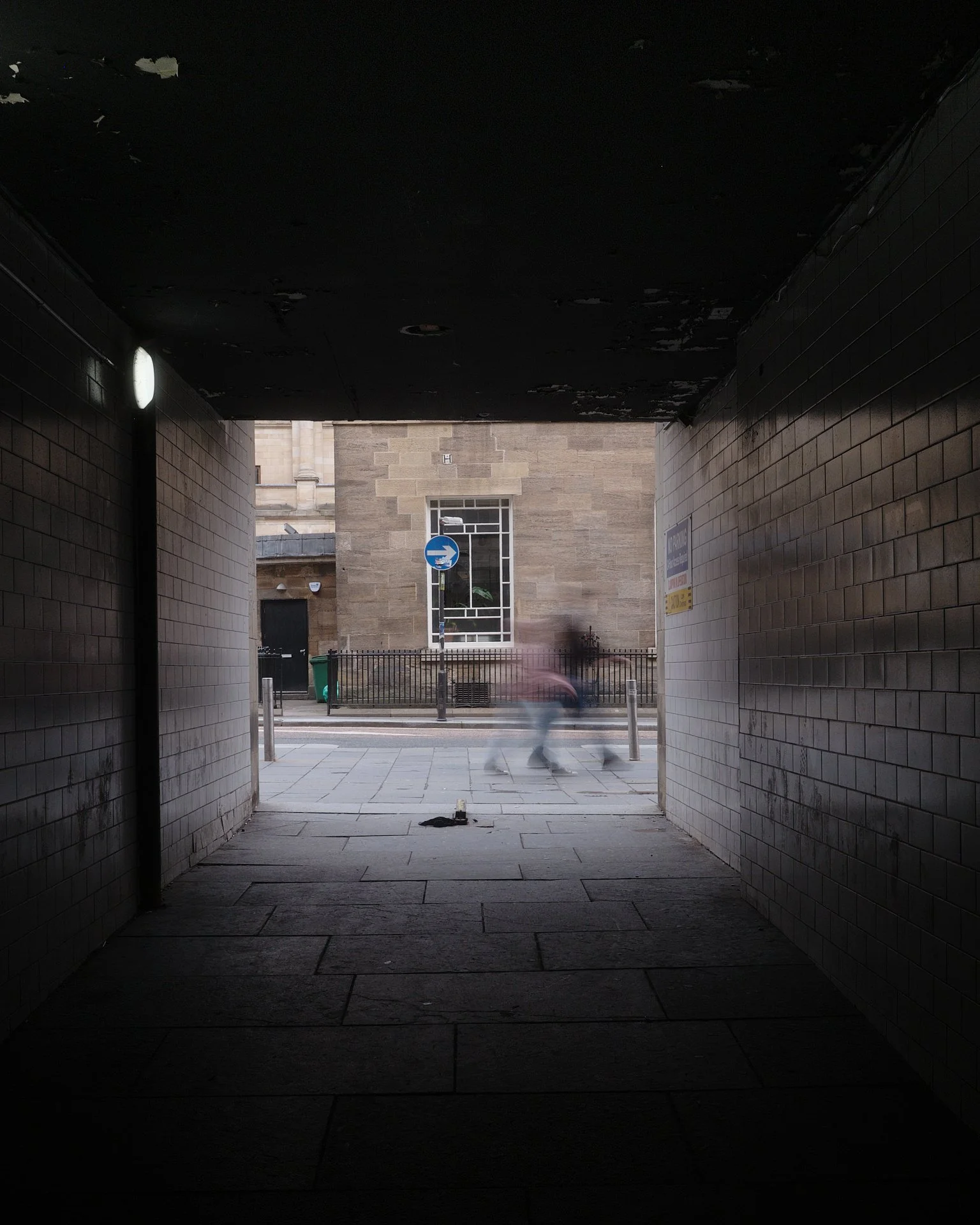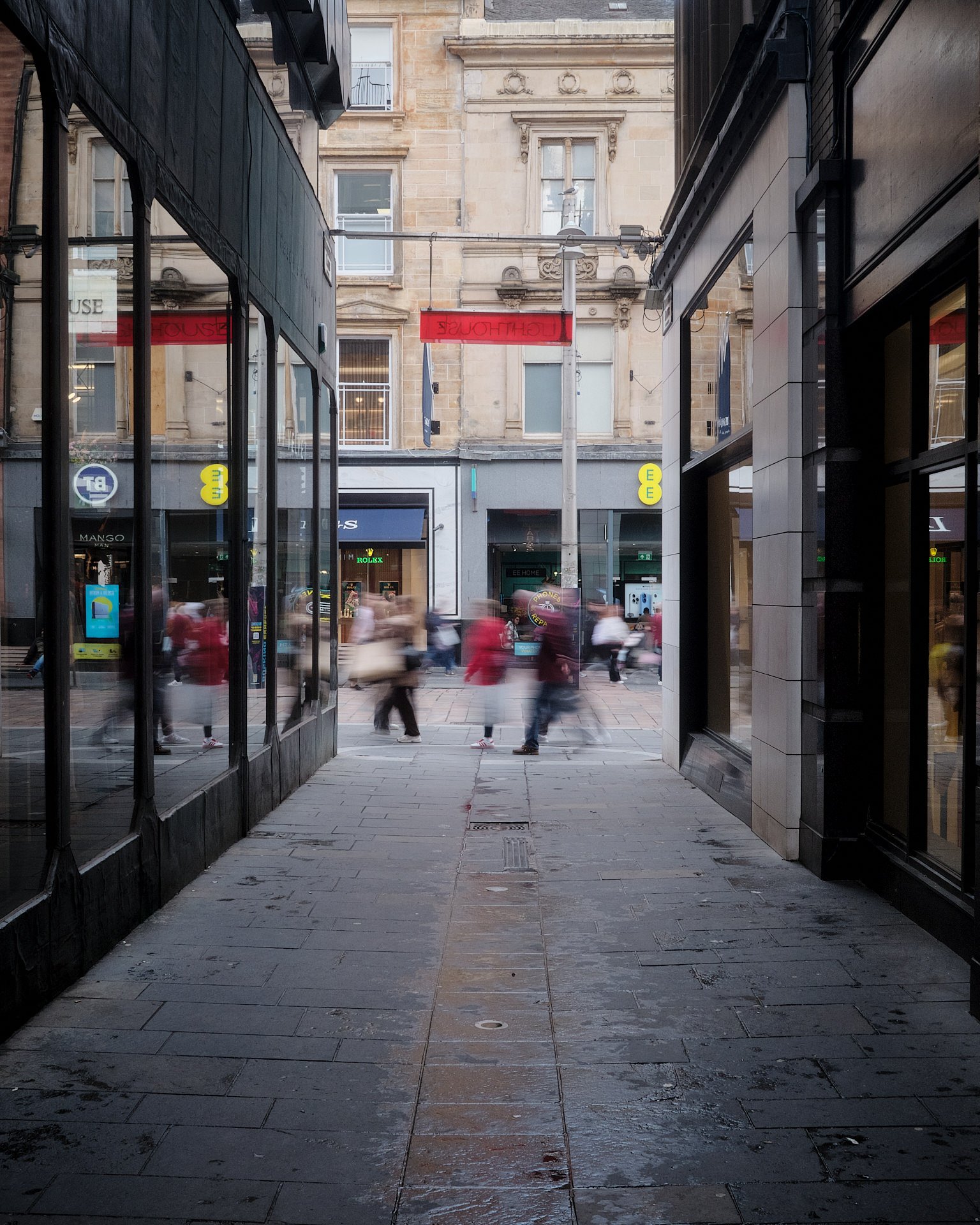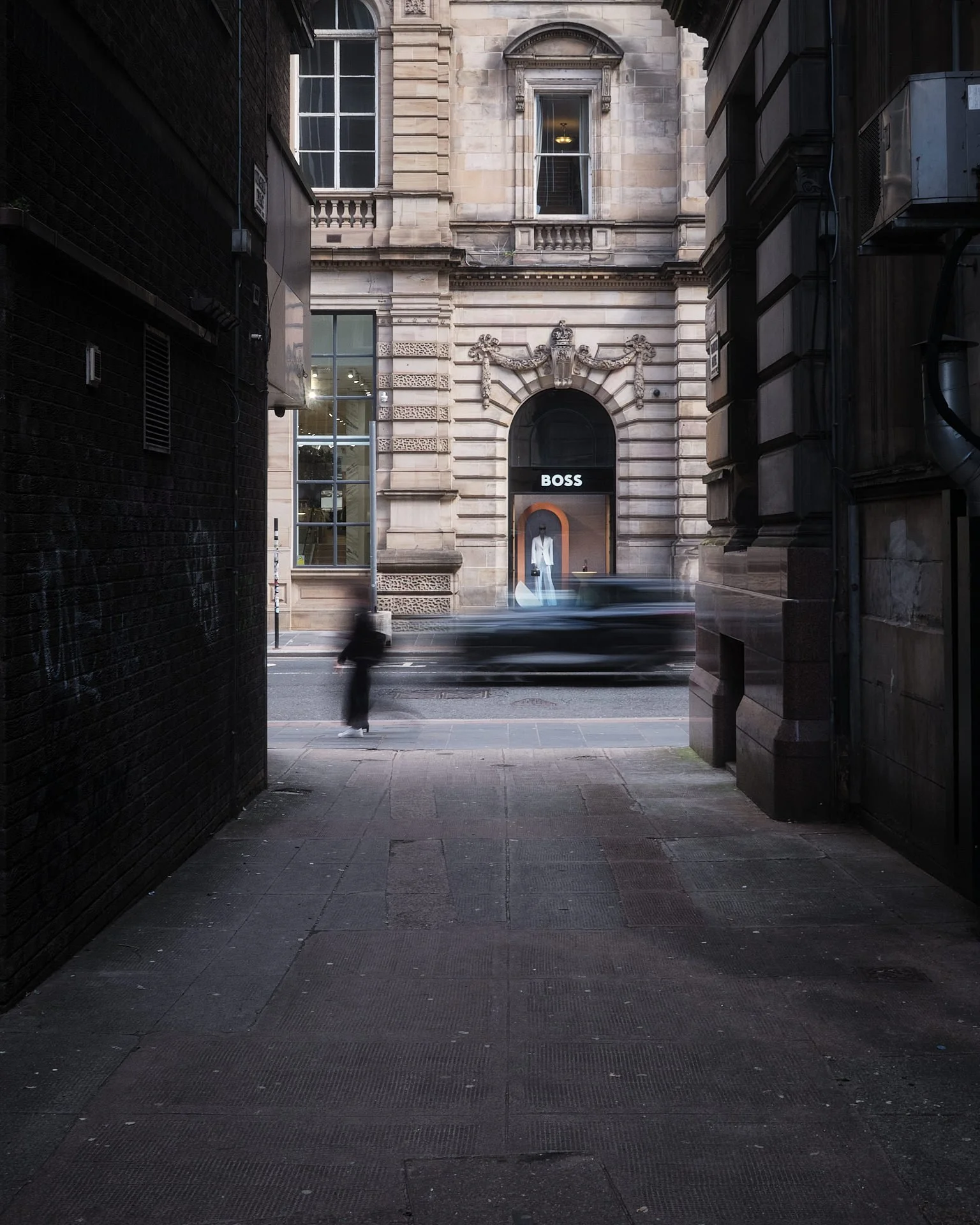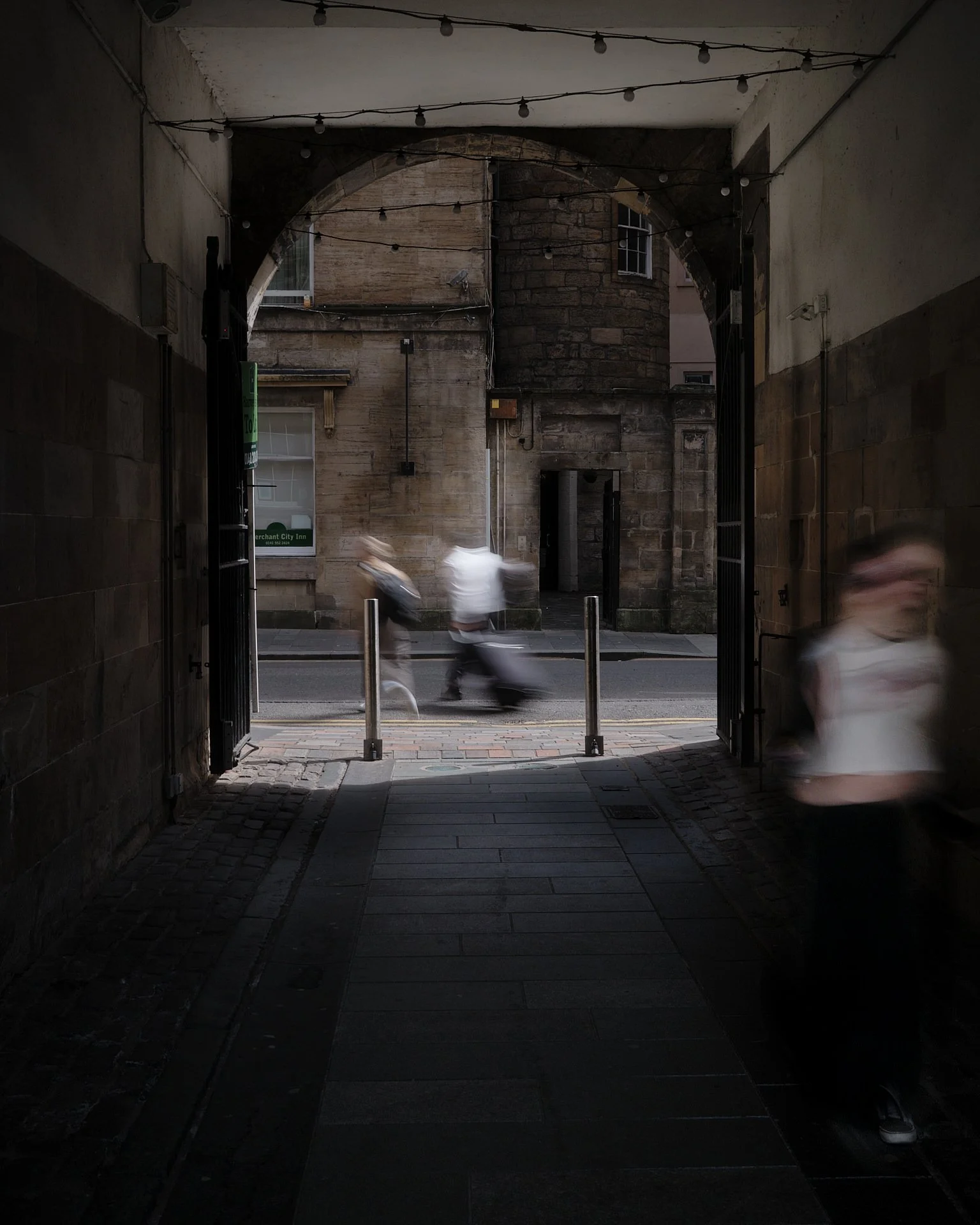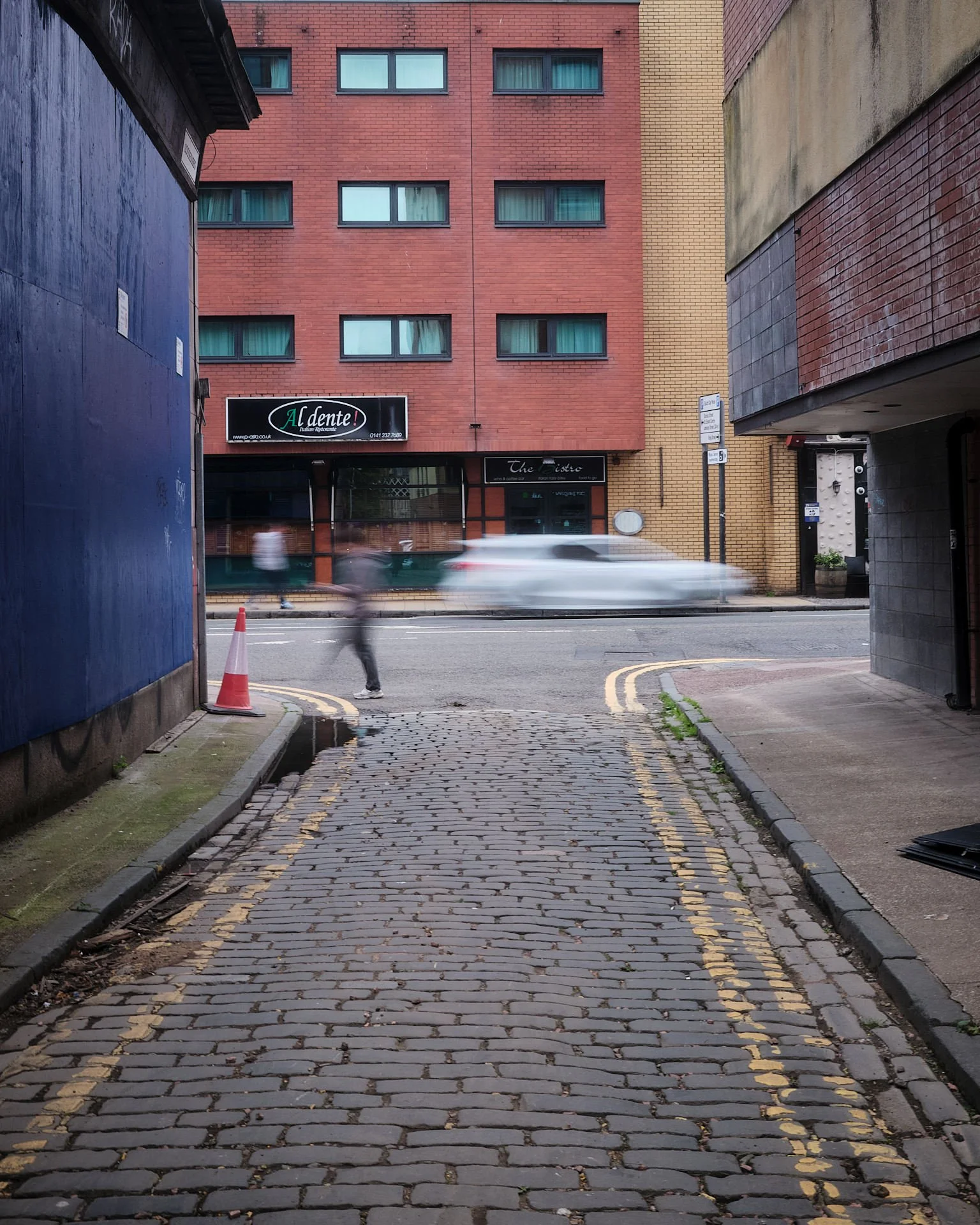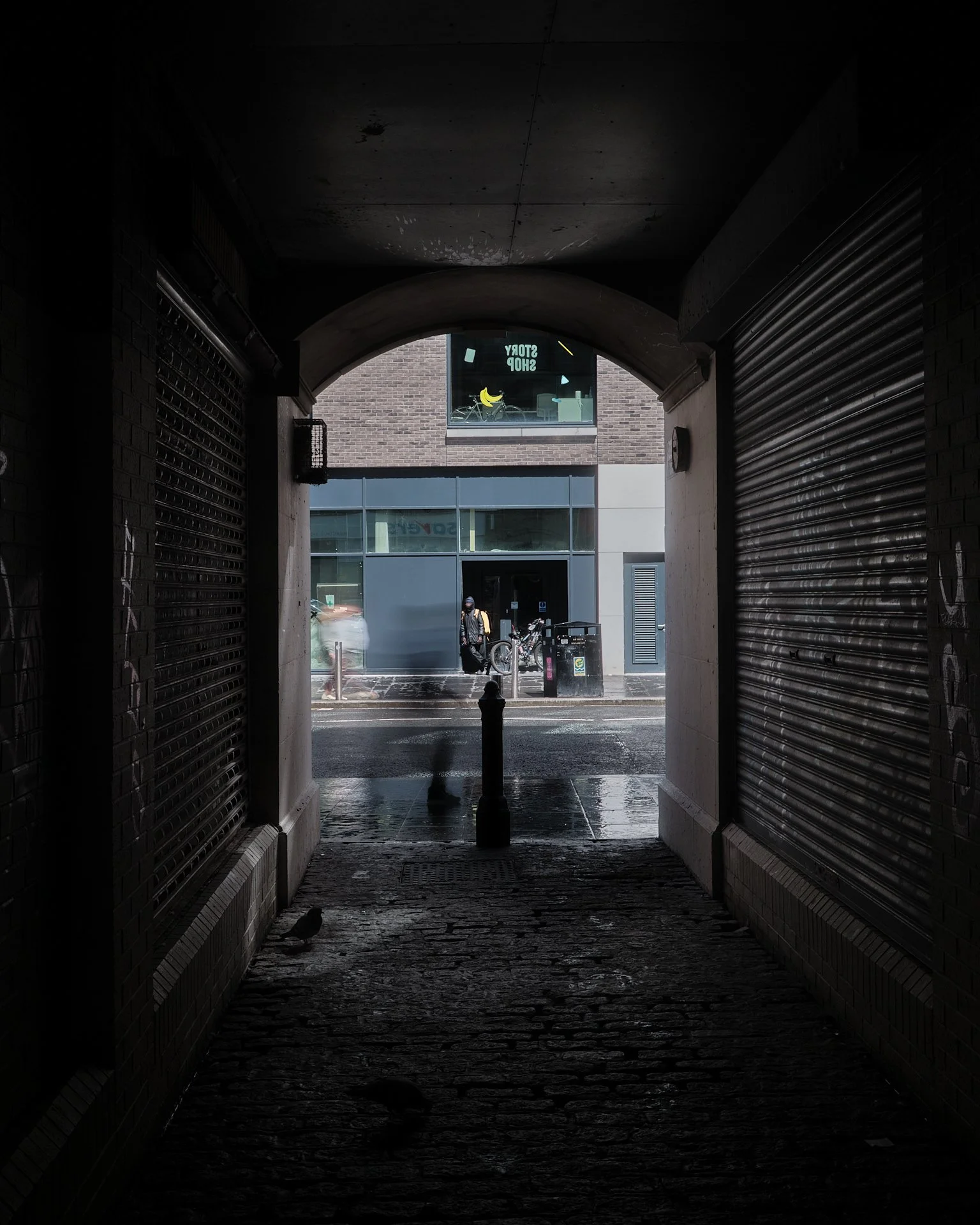Regression
Regression
Regression is a series of photographs made in the lanes of Glasgow city centre that evokes the increasing isolation and marginalisation felt by transgender people in today’s society.
The dark lanes, surrounded by tall buildings and the blurred, anonymous and often threatening figures represent the isolation, fear and apprehension increasingly experienced by transgender people as we are forced to regress into the margins of public life and society.
The distance between the camera and the anonymous figures of people going about their daily lives in public inverts the convention that documentary and street photography should be up close. Transgender people must be increasingly wary as society becomes increasingly hostile towards them.
The grid presentation and broadly geographical sequence of this work is inspired by the grid pattern of the streets of Glasgow city centre.
On 16 April 2025 the UK Supreme Court ruled that transgender people with gender recognition certificates “will still be treated as their sex assigned at birth in various areas of public life”. This resulted in transgender rights regressing to where they were prior to Gender Recognition Act 2004.
As a result the UK dropped from 16th to 22nd place in the annual ranking of LGBTQ+ rights of 49 European countries by ILGA-Europe (International Lesbian, Gay, Bisexual, Trans and Intersex Association Europe). The UK has regressed from 1st to 22nd place since 2015.
The Supreme Court ruling and the resulting ‘interim guidance’ from the Equality and Human Rights Commission led to an immediate increase in discrimination against transgender people by organisations and individuals.
The message being received is that transgender people are no longer welcome in public life in the UK.
